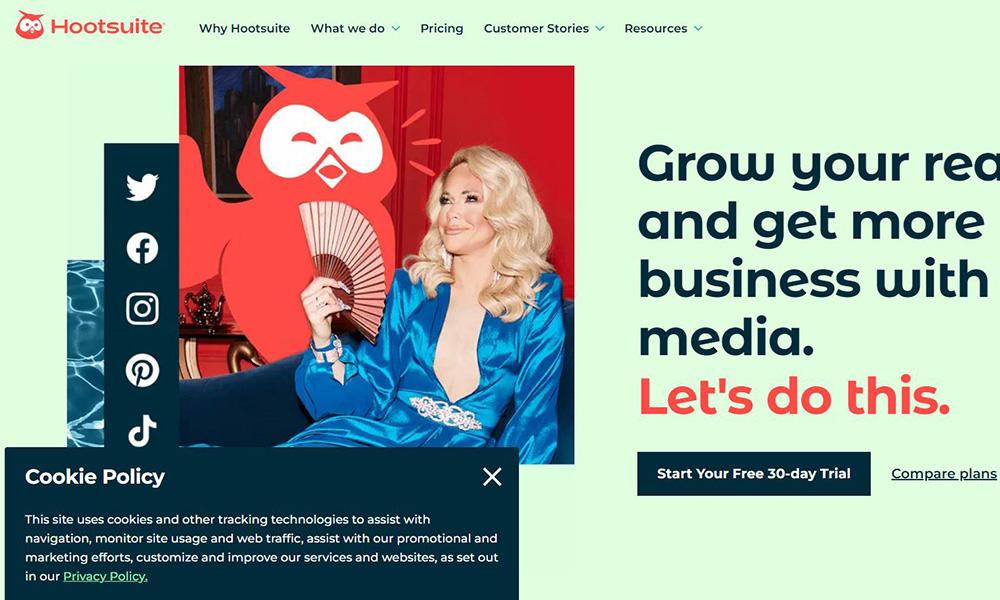How to Become a Successful Social Media Consultant?
With the rise of social media, businesses require experts to help them navigate the complex and ever-changing landscape of social media. This is where social media consultants come in. As a social media consultant, you can help businesses grow their online presence, increase their reach, and engage with their target audience. This article will discuss how to become a successful social media consultant.
Understanding the Role of a Social Media Consultant
Before diving into becoming a successful social media consultant, it’s essential to understand what the role entails. A social media expert is responsible for creating and executing strategies that align with a business’s goals. This includes creating content, managing social media accounts, analyzing data, and staying up-to-date with the latest trends.
Becoming a Successful Social Media Consultant
Step 1: Build Your Brand
Building your brand is one of the first things you should do as a social media consultant. This means creating a solid online presence showcasing your social media expertise. Start by creating profiles on social media platforms and regularly posting content that showcases your skills and knowledge.
Building Your Brand: Why It Matters
Personal branding is more than just a buzzword; it’s a crucial aspect of your professional life. It’s about establishing yourself as a thought leader, a trusted expert in your industry. Building your brand can help you stand out, showcase your skills and expertise, and advance your career.
The Elements of a Strong Personal Brand
A solid personal brand is built on several key elements:
A clear message: Your brand should be clear and concise. It should communicate who you are, what you do, and what makes you unique. Your message should be consistent across all platforms, from your website to social media profiles.
Professional appearance: Your appearance is a critical part of your brand. Dress professionally, and make sure your online presence reflects your professional image.
Expertise: It would be best if you were seen as an expert in your field to build a solid personal brand. Staying up-to-date with the latest tech developments and continually honing your skills.
Consistency: Consistency is critical when it comes to building a personal brand. Be consistent in your messaging, appearance, and actions. This will help you establish yourself as a trusted authority in your industry.
Step 2: Build Your Network
Networking is a crucial part of being a successful social media consultant. Attend events, conferences, and workshops related to social media to meet other professionals in the industry. This will help you build relationships and gain new clients.
Attend Networking Events
Attending networking events like industry conferences or meetups is a great way to connect with like-minded professionals. Be prepared to introduce yourself and your brand.
Utilize Social Media
Social media is the best tool for building your network. LinkedIn is beneficial for professional networking. Join industry-related groups, engage with other professionals, and share your expertise to increase visibility.
Volunteer and Get Involved
Volunteering and getting involved in your community or industry can help you expand your network. Attend charity events, join local organizations, and offer to speak at events to increase your visibility and connect with others in your field.
Follow Up and Nurture Relationships
Building a solid network requires follow-up and relationship-building. Follow up with new connections after networking events, engage with your network on social media, and offer your help or expertise when needed. Nurturing these relationships will help you build a strong network of professionals who can support your brand.
Step 3: Gain Experience
To become a successful social media consultant, you must have field experience. Start by offering your services to family and friends or small businesses. This will help you gain experience and build your portfolio.
Becoming a successful social media consultant requires more than just knowledge of the latest trends and techniques. To truly excel in this field, you must have experience and a deep understanding of social media. Here are some tips on how to gain experience as a social media consultant:
Build Your Own Social Media Presence
The best way to gain experience with social media is to build your presence on various platforms. Create and manage social media accounts for yourself or your brand, and experiment with different techniques to increase your reach and engagement.
Offer to Manage Social Media Accounts for Small Businesses
Small businesses often struggle with managing their social media presence and may be willing to hire a consultant to help. Offer to manage their social media accounts for free to gain experience and build your portfolio.
Volunteer for Nonprofits
Nonprofits often need help with social media management, and volunteering to manage their social media accounts can be a way to gain k. This will also allow you to build relationships in your community and showcase your expertise to potential clients.
Take on Internships or Freelance Projects
Internships or freelance projects can provide valuable experience in social media consulting. Look for opportunities to work with established consultants or agencies, as this can expose you to various clients and industries.
Stay Up-to-Date with Industry Trends
Staying current with the latest social media trends and techniques is crucial for success as a social media consultant. Attend industry conferences, read industry blogs and publications, and network with other professionals to stay informed and expand your knowledge.

social media expert
Step 5: Hone Your Skills
As a social media consultant, you must have a wide range of skills, including content creation, management, data analysis, and customer service. Take courses or workshops to hone your skills and stay ahead of the competition.
In today’s technology-driven world, strong IT skills are essential for career growth and success. Whether you want to advance in your current role or make a career change, honing your IT skills can help you stay competitive and relevant. Here are some tips on how to improve your IT skills:
Take Courses and Certifications
Taking courses and earning certifications can be a great way to improve your IT skills. There are many online courses available that can help you learn new skills. Some popular certification programs include CompTIA, Cisco, and Microsoft.
Attend Conferences and Networking Events
Attending conferences and networking events can provide valuable opportunities to learn from other professionals and stay up-to-date with industry trends. Many IT organizations host events and conferences throughout the year, so check out their schedules and plan to attend those that align with your career goals.
Practice with Real-World Projects
Practicing your IT skills with real-world projects can help you gain hands-on experience and improve your problem-solving abilities. Look for opportunities to work on projects within your organization or volunteer for nonprofit organizations that require IT support.
Learn to Code
Learning to code can be a valuable skill in many IT roles. Many online resources can help you learn to code, including Codecademy, Udemy, and Coursera. You can also attend coding boot camps or enroll in coding-focused degree programs.
Stay Up-to-Date with Industry News
It is crucial for IT professionals to stay informed about the latest technology trends and news. Subscribe to industry publications, follow relevant social media accounts, and attend webinars to keep up-to-date and informed about new developments in the field.
Step 6: Determine Your Niche
To stand out as a social media consultant, it’s essential to determine your niche. This could be a specific industry, such as healthcare or beauty, or a specific social media platform like Instagram or LinkedIn. Focusing on a place will help you become an expert in that area and attract clients specifically looking for that expertise.
Determining your niche is essential in creating a successful business or career. Your place is where you specialize and differentiate yourself from others in your field. Here are some tips on how to determine your location:
Assess Your Skills and Interests
Start by assessing your skills and interests. What are you good at, and what do you enjoy doing? Identifying your strengths and passions can help you find a niche that aligns with your interests and allows you to use your skills effectively.
Research the Market
Research the market to identify gaps or areas of high demand. Look at your competitors and analyze what they are offering. Is there a particular area where they are lacking or where you could differentiate yourself? Consider conducting surveys or interviews with potential clients to understand their needs and pain points.
Step 8: Build Your Portfolio
A strong portfolio is essential for any social media consultant. This should include examples of your work, such as social media campaigns you’ve managed and the results they produced. Your portfolio should showcase your skills and experience to potential clients.
As a social media consultant, your portfolio should showcase your experience, expertise, and creativity in managing social media platforms and creating effective social media campaigns. Here are some tips for building your portfolio for a social media consultant:
Highlight your social media experience: List your previous clients and the social media platforms you have managed. Showcase your ability to grow followers, engagement, and brand awareness through social media.
Off-Page SEO: Everything You Need to Know
Showcase your campaign results:
- Share case studies of successful social media campaigns you have executed.
- Include metrics such as reach, engagement, conversions, and ROI.
- Highlight your ability to target the right audience, create compelling content, and optimize campaigns for social media platforms.
Demonstrate your social media skills: Showcase your ability to create engaging content, including graphics, videos, and copy. Share examples of your social media posts, ads, and stories. Highlight your ability to use social media analytics and tools to measure performance and make data-driven decisions.
Show your industry knowledge: Demonstrate your expertise in social media trends, best practices, and emerging platforms. Share thought leadership pieces, blog posts, or webinars showcasing your social media marketing knowledge and insights.
Provide recommendations: Include recommendations or testimonials from satisfied clients or colleagues. Highlight your ability to build strong client relationships, communicate effectively, and deliver results.
Conclusion
Becoming a successful social media consultant takes time, effort, and dedication. By following the steps outlined in this article, you can build your expertise, gain experience, and attract new clients. Remember to stay up-to-date with the latest trends and tools, hone your skills, and determine your niche. With the right approach, you can become a successful social media consultant and help businesses achieve their goals.
FAQs
Q: What skills do I need to become a social media consultant?
A: To become a successful social media consultant, you need a combination of creative, analytical, and interpersonal skills. These include content creation, social media management, data analysis, project management, and client communication. You must also stay up-to-date with social media trends, best practices, and tools.
Q: How do I build my social media consulting portfolio?
A: To build your social media consulting portfolio and showcase your experience, expertise, and creativity in managing social media platforms and creating effective social media campaigns. Highlight your social media experience, campaign results, skills, industry knowledge, and client recommendations. Create a visually appealing portfolio using LinkedIn, Behance, or Dribbble.
Q: How do I find clients as a social media consultant?
A: To find clients as a social media consultant, you can leverage your personal and professional network, attend networking events, reach out to potential clients on social media, or join freelance platforms like Upwork or Fiverr. You can also offer free consultations or create a lead magnet to attract potential clients.
Q: How do I price my social media consulting services?
A: To price your social media consulting services, consider your experience, expertise, and market demand. You can charge an hourly rate, a project-based fee, or a retainer fee. Research industry benchmarks and adjust your pricing based on your value proposition, deliverables, and competition.
Q: How do I measure the success of social media campaigns?
A: To measure the success of social media campaigns, track metrics such as reach, engagement, conversions, and ROI. Use social media analytics tools like Facebook Insights, Twitter Analytics, and Google Analytics to measure performance and optimize campaigns. Set clear goals and KPIs for each campaign and adjust your strategy based on the results.
Read Also: Web Hosting Company in Lahore Pakistan







